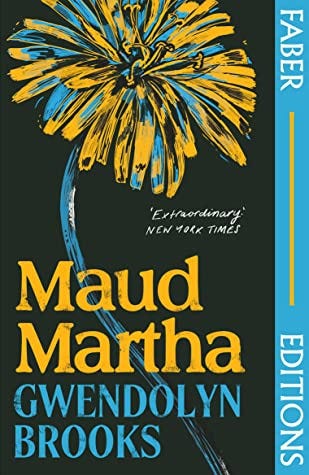Dandelions & Dignity
Ya'll remember when "lit" used to mean literature? Anyway, let's chat about Black Heroines in lit!
Happy Sunday folks! How are ya’ll doing today? I hope all is well, and if it’s not, then it will be soon, promise! So I wanted to chat about something that's been on my mind lately; how Black heroines have evolved in literature over the years. This journey isn't just about characters in books; it's about how America has slowly (sometimes painfully slowly) come to see Black women as fully human.
So, where did it all begin? If you go way back, the first Black women in American literature were sharing their stories through slave narratives. Think Harriet Jacobs writing as "Linda Brent" in Incidents in the Life of a Slave Girl. These women were literally fighting for their lives while trying to tell their stories.
Can you imagine having to convince folks you deserve basic human dignity? That was the reality for these early heroines. When Linda Brent wrote that she'd rather her children be "half-starved paupers of Ireland than the most pampered among the slaves of America," she was not just making a statement, she was asserting her humanity in a world determined to deny it.
These women laid the groundwork. They created the foundation that every Black heroine since has built upon.
Fast forward to the 1920s, and Black women writers were starting to break free during the Harlem Renaissance. This is when we get characters like Nella Larsen's Helga Crane and Zora Neale Hurston's Janie Crawford who got to have actual personalities, desires, and inner lives.
What I love about Janie in "Their Eyes Were Watching God" is that she's allowed to make mistakes, have sexual desire, and chase her own happiness. That might not sound revolutionary today, but trust me, it was. These weren't just symbols of racial injustice anymore – they were women figuring out their lives at the intersection of race, gender, and personal dreams.
Now, let me tell you about one of my absolute favorites; Gwendolyn Brooks. If you don't know, Brooks was the first Black person to win a Pulitzer Prize back in 1950, and she changed the game completely.
What made Brooks special? She found heroism in everyday Black life. Her character Maud Martha never saves the world or leads a revolution. Instead, her heroism is in finding beauty and dignity in a world that constantly tries to deny both to Black women.
There's this moment in Maud Martha where she looks at a dandelion, a weed some ignore or if you’re a child in the south, a flower that grants wishes; and sees something beautiful. Brooks writes that Maud "was fond of the taste of the yellow petals, the bitter sweetness," even knowing the flower would soon be "jerked up." If that isn't a metaphor for Black women's resilience, I don't know what is!
Brooks showed us that heroism isn't just in grand gestures – it's in the daily choice to see yourself as worthy and beautiful when the world tells you otherwise. She wrote about mothers making impossible choices, women living in poverty, and folks finding joy despite everything. And she did it all while mixing classical poetry with Black vernacular, creating space for ordinary Black women's stories to be told with extraordinary beauty.
The 60s and 70s brought a whole new vibe with the Black Arts Movement. Suddenly, our literary heroines were explicitly political, rejecting white standards and embracing Black cultural nationalism.
Writers like Nikki Giovanni, Sonia Sanchez, and Audre Lorde created characters who weren't just trying to survive or find personal happiness – they were fighting for collective liberation. Their heroism was measured by how they contributed to the community's freedom, not just their own.
In recent decades, we've seen an explosion of diverse Black heroines who get to be everything – strong and vulnerable, political and messy, traditional and revolutionary. Think about Toni Morrison's unforgettable women, Jamaica Kincaid's boundary-crossing characters, or Chimamanda Ngozi Adichie's heroines moving between cultures.
I'm obsessed with how contemporary Black heroines can contain multitudes. In Brit Bennett's "The Vanishing Half," twins Stella and Desiree make completely different choices about their racial identity. In Yaa Gyasi's "Homegoing," we see generations of women navigating the aftermath of colonialism. And in Jesmyn Ward's "Salvage the Bones," pregnant Esch faces Hurricane Katrina with a mix of vulnerability and fierce determination.
What connects today's complex heroines back to Brooks' vision is the insistence that Black women's inner lives matter deeply. Like Maud Martha with her dandelion, these characters claim the right to have complicated feelings about their circumstances. Their heroism isn't about being perfect – it's about persisting anyway.
I can not tell the truth about anything unless I confess being a student, growing and learning something new everyday. The more I learn, the clearer my view on the world becomes. - Sonia Sanchez
The beautiful thing about this evolution is that Black heroines in literature have expanded what's possible for all characters. We've gone from objects of pity to subjects with agency, from one-dimensional symbols to complex individuals with layered identities.
What Gwendolyn Brooks started – showing the poetry in ordinary Black women's lives – has grown into a rich tradition where Black heroines can be absolutely anything: scientists, sorceresses, mothers, rebels, saints, sinners, and everything in between.
The real gift is that no single character has to represent all Black women anymore. Instead, their collective presence creates a beautiful mosaic that shows the diversity of Black womanhood in all its glory. As Brooks might say, each one is "a flower, a weed" with the right to be bitter, sweet, and always, undeniably, lovely.
What Black heroines have you connected with in your reading journey? Drop your favorites in the comments below! See you next time! - Brya










